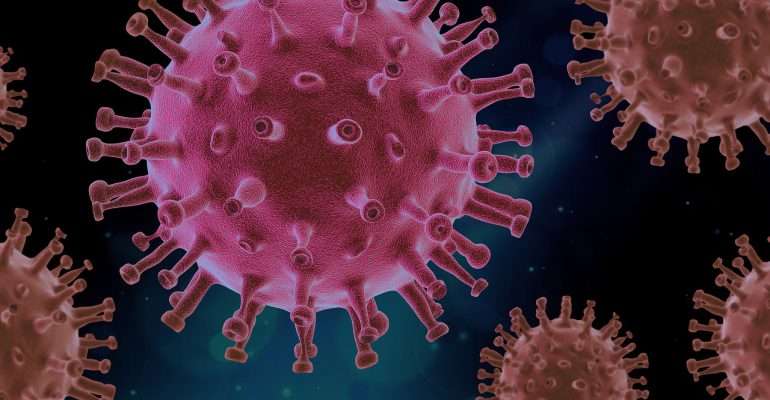By Kara Fox, CNN
(CNN) Pregnant people who develop Covid-19 symptoms risk emergency complications and other problems with their pregnancies, according to two new studies. And pregnancy alone places people at an increased risk for severe illness and death. But despite these risks, pregnant people remain some of the most vaccine-hesitant populations in the United States, according to the US Centers for Disease Control and Prevention (CDC). Only 33% of pregnant people between 18-49 are fully vaccinated, according to CDC data from October 2, a figure dwarfed by rates seen in the rest of the population eligible for the vaccine. Around 66% of people aged 12 and older are now fully inoculated in the US, with nearly 77% of that same age group having at least one shot. Vaccine rates are even lower among pregnant Hispanic or Latino (28%) and Black people (17.4%) — minority groups who also experience unacceptably poor maternal health outcomes, including disproportionately high rates of death related to pregnancy or childbirth.
The reluctance to get vaccinated is likely driven by fluctuating guidance from health officials earlier in the pandemic. Initially the CDC said that pregnant people could get the vaccine but it did not recommend it. That’s because the initial vaccine studies did not intentionally include pregnant people, although there were some participants who became pregnant during the studies. But that all changed in the summer. In late July, two leading OBGYN associations threw their unequivocal support behind the vaccine, and in August, the CDC formally recommended the vaccine after studies showed no increased risk of miscarriage. Last month, the CDC sent out an urgent plea that strongly recommended pregnant people get the shot immediately.
Still, low vaccine uptake in this population persists. And it’s translating into a worrying uptick in hospital admissions that is leaving some new mothers stuck in hospital and fighting for their lives for weeks before ever holding their newborns. Others will never meet their babies.
At least 180 pregnant people have died from Covid since the start of the pandemic, with 22 deaths recorded in August alone, according to the CDC. The death rates among this group are particularly sobering, given that annual maternal mortality rates excluding Covid hover around 700 annually. More than 22,500 pregnant people have been hospitalized with Covid since the start of the pandemic, with 12% of those cases resulting in admission to the ICU, according to the CDC figures.
The outlook in England is even more bleak. One in five of the country’s most critically ill Covid patients are unvaccinated pregnant women, the National Health Service (NHS) said in a Monday statement. Pregnant women accounted for almost a third (32%) of all women between the ages of 16 and 49 on extracorporeal membrane oxygenation (ECMO) — a medical therapy used only when a patient’s lungs are so damaged that a ventilator cannot maintain oxygen levels, the NHS said. This was up from just 6% at the start of the pandemic. The NHS figures were released to encourage expectant mothers to get the shot. England’s chief midwife, Jacqueline Dunkley-Bent, said the statistics were “another stark reminder that the Covid-19 jab can keep you, your baby and your loved ones, safe and out of hospital.”Globally, Covid vaccine guidelines for pregnant and lactating people still vary, with 51 countries explicitly recommending that some or all pregnant people should receive the vaccine, according to the COMIT Covid-19 Maternal Immunization Tracker. The vaccines are permitted for pregnant people in 53 countries and in an additional 23 countries for people who are essential health workers or who have underlying health conditions. A total of 32 countries do not recommend the vaccine for pregnant people yet.Meanwhile, two studies from researchers in the US and Belgium suggest that the incidence of Covid among children appears to be comparable to that among adults. This is leading public health officials to consider the messaging around vaccination strategies for kids as the rollout extends to younger populations.
YOU ASKED. WE ANSWERED.
Q: Do Covid vaccines affect pregnancy, fertility or periods?A: There’s much misinformation circulating around the claim that vaccines cause miscarriage and affect fertility. But they are not supported by scientific evidence.
Two studies published in September show that Covid vaccines do not increase the risk of miscarriage. Researchers at the CDC studied data from more than 2,000 pregnant people who got vaccinated. They found no higher risk among this group than for pregnant people in general. Miscarriages are common — between 11% and 22% of all recognized pregnancies end in miscarriages before 20 weeks of gestation, they said. This rate did not go up among the vaccinated, researchers said.
There is evidence the immune response prompted by both vaccines and viral infections can temporarily affect menstrual cycles. So studying these effects is important to mitigate any fears, according to Dr. Victoria Male, a reproductive specialist at Imperial College London. “Vaccine hesitancy among young women is largely driven by false claims that Covid-19 vaccines could harm their chances of future pregnancy,” Male wrote in the British Medical Journal last month. “Failing to thoroughly investigate reports of menstrual changes after vaccination is likely to fuel these fears,” she added.
“Most people who report a change to their period after vaccination find that it returns to normal the following cycle and, importantly, there is no evidence that Covid-19 vaccination adversely affects fertility,” Male said.Send your questions here. Are you a health care worker fighting Covid-19? Message us on WhatsApp about the challenges you’re facing: +1 347-322-0415.
All rights and credits goes Kara Fox, CNN.

